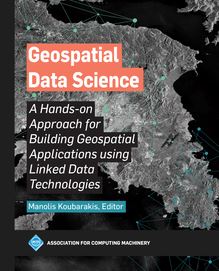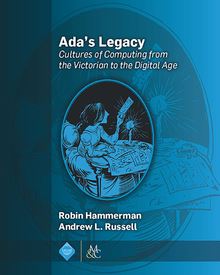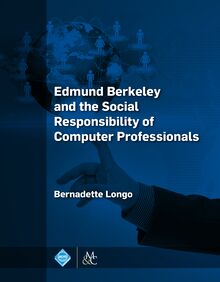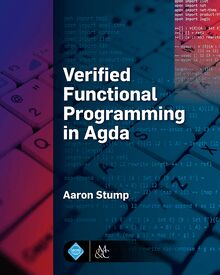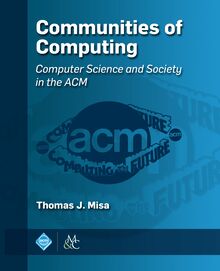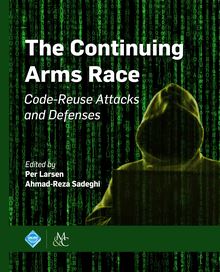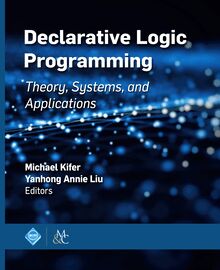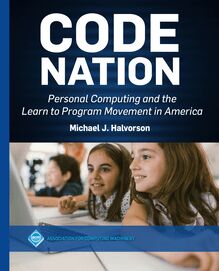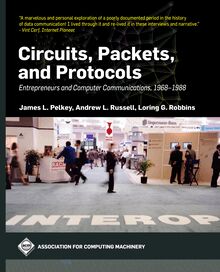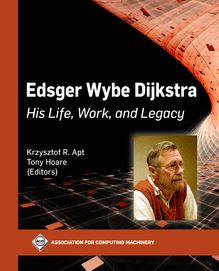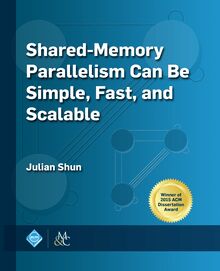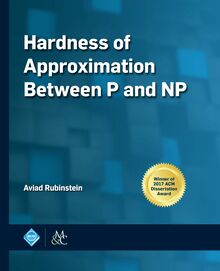-
 Univers
Univers
-
 Ebooks
Ebooks
-
 Livres audio
Livres audio
-
 Presse
Presse
-
 Podcasts
Podcasts
-
 BD
BD
-
 Documents
Documents
-
- Cours
- Révisions
- Ressources pédagogiques
- Sciences de l’éducation
- Manuels scolaires
- Langues
- Travaux de classe
- Annales de BEP
- Etudes supérieures
- Maternelle et primaire
- Fiches de lecture
- Orientation scolaire
- Méthodologie
- Corrigés de devoir
- Annales d’examens et concours
- Annales du bac
- Annales du brevet
- Rapports de stage
La lecture à portée de main
Vous pourrez modifier la taille du texte de cet ouvrage
Découvre YouScribe en t'inscrivant gratuitement
Je m'inscrisCode Nation , livre ebook
Découvre YouScribe en t'inscrivant gratuitement
Je m'inscrisEn savoir plus
Vous pourrez modifier la taille du texte de cet ouvrage
En savoir plus

Description
Code Nation explores the rise of software development as a social, cultural, and technical phenomenon in American history. The movement germinated in government and university labs during the 1950s, gained momentum through corporate and counterculture experiments in the 1960s and 1970s, and became a broad-based computer literacy movement in the 1980s. As personal computing came to the fore, learning to program was transformed by a groundswell of popular enthusiasm, exciting new platforms, and an array of commercial practices that have been further amplified by distributed computing and the Internet. The resulting society can be depicted as a “Code Nation”—a globally-connected world that is saturated with computer technology and enchanted by software and its creation.
Code Nation is a new history of personal computing that emphasizes the technical and business challenges that software developers faced when building applications for CP/M, MS-DOS, UNIX, Microsoft Windows, the Apple Macintosh, and other emerging platforms. It is a popular history of computing that explores the experiences of novice computer users, tinkerers, hackers, and power users, as well as the ideals and aspirations of leading computer scientists, engineers, educators, and entrepreneurs. Computer book and magazine publishers also played important, if overlooked, roles in the diffusion of new technical skills, and this book highlights their creative work and influence.
Code Nation offers a “behind-the-scenes” look at application and operating-system programming practices, the diversity of historic computer languages, the rise of user communities, early attempts to market PC software, and the origins of “enterprise” computing systems. Code samples and over 80 historic photographs support the text. The book concludes with an assessment of contemporary efforts to teach computational thinking to young people.
- Acknowledgments
- How important is programming?
- Four computing mythologies
- FORTRAN, Logo, and the Tower of Babel
- Advocating computer literacy
- Four million BASIC programmers
- Power users, tinkerers, and gurus
- Hackers and cyberpunks
- Computer magazines and historical research
- Developing for MS-DOS: authors and entrepreneurs
- C programming nation: from Tiny C to Microsoft Windows
- “Evangelism is sales done right”: PCs and commercial programming culture
- Afterword: programming in the Internet age
- Index
Sujets
Informations
| Publié par | Association for Computing Machinery and Morgan & Claypool Publishers |
| Date de parution | 22 avril 2020 |
| Nombre de lectures | 1 |
| EAN13 | 9781450377560 |
| Langue | English |
| Poids de l'ouvrage | 11 Mo |
Informations légales : prix de location à la page 0,1598€. Cette information est donnée uniquement à titre indicatif conformément à la législation en vigueur.
Extrait
Code Nation
ACM Books
Editor in Chief
Sanjiva Prasad, Indian Institute of Technology (IIT) Delhi
Founding Editor
M. Tamer Özsu, University of Waterloo
ACM Books is a series of high-quality books for the computer science community, published by ACM in collaboration with Morgan & Claypool Publishers. ACM Books publications are widely distributed in both print and digital formats through booksellers and to libraries (and library consortia) and individual ACM members via the ACM Digital Library platform.
Computing and the National Science Foundation, 1950–2016: Building a Foundation for Modern Computing
Peter A. Freeman, Georgia Institute of Technology
W. Richards Adrion, University of Massachusetts Amherst
William Aspray, University of Colorado Boulder
2019
Providing Sound Foundations for Cryptography: On the work of Shafi Goldwasser and Silvio Micali
Oded Goldreich, Weizmann Institute of Science
2019
Concurrency: The Works of Leslie Lamport
Dahlia Malkhi, VMware Research and Calibra
2019
The Essentials of Modern Software Engineering: Free the Practices from the Method Prisons!
Ivar Jacobson, Ivar Jacobson International
Harold “Bud” Lawson, Lawson Konsult AB (deceased)
Pan-Wei Ng, DBS Singapore
Paul E. McMahon, PEM Systems
Michael Goedicke, Universität Duisburg–Essen
2019
Data Cleaning
Ihab F. Ilyas, University of Waterloo
Xu Chu, Georgia Institute of Technology
2019
Conversational UX Design: A Practitioner’s Guide to the Natural Conversation Framework
Robert J. Moore, IBM Research–Almaden
Raphael Arar, IBM Research–Almaden
2019
Heterogeneous Computing: Hardware and Software Perspectives
Mohamed Zahran, New York University
2019
Hardness of Approximation Between P and NP
Aviad Rubinstein, Stanford University
2019
The Handbook of Multimodal-Multisensor Interfaces, Volume 3: Language Processing, Software, Commercialization, and Emerging Directions
Editors: Sharon Oviatt, Monash University
Björn Schuller, Imperial College London and University of Augsburg
Philip R. Cohen, Monash University
Daniel Sonntag, German Research Center for Artificial Intelligence (DFKI)
Gerasimos Potamianos, University of Thessaly
Antonio Krug̈er, Saarland University and German Research Center for Artificial Intelligence (DFKI)
2019
Making Databases Work: The Pragmatic Wisdom of Michael Stonebraker
Editor: Michael L. Brodie, Massachusetts Institute of Technology
2018
The Handbook of Multimodal-Multisensor Interfaces, Volume 2: Signal Processing, Architectures, and Detection of Emotion and Cognition
Editors: Sharon Oviatt, Monash University
Björn Schuller, University of Augsburg and Imperial College London
Philip R. Cohen, Monash University
Daniel Sonntag, German Research Center for Artificial Intelligence (DFKI)
Gerasimos Potamianos, University of Thessaly
Antonio Krug̈er, Saarland University and German Research Center for Artificial Intelligence (DFKI)
2018
Declarative Logic Programming: Theory, Systems, and Applications
Editors: Michael Kifer, Stony Brook University
Yanhong Annie Liu, Stony Brook University
2018
The Sparse Fourier Transform: Theory and Practice
Haitham Hassanieh, University of Illinois at Urbana-Champaign
2018
The Continuing Arms Race: Code-Reuse Attacks and Defenses
Editors: Per Larsen, Immunant, Inc.
Ahmad-Reza Sadeghi, Technische Universität Darmstadt
2018
Frontiers of Multimedia Research
Editor: Shih-Fu Chang, Columbia University
2018
Shared-Memory Parallelism Can Be Simple, Fast, and Scalable
Julian Shun, University of California, Berkeley
2017
Computational Prediction of Protein Complexes from Protein Interaction Networks
Sriganesh Srihari, The University of Queensland Institute for Molecular Bioscience
Chern Han Yong, Duke-National University of Singapore Medical School
Limsoon Wong, National University of Singapore
2017
The Handbook of Multimodal-Multisensor Interfaces, Volume 1: Foundations, User Modeling, and Common Modality Combinations
Editors: Sharon Oviatt, Incaa Designs
Björn Schuller, University of Passau and Imperial College London
Philip R. Cohen, Voicebox Technologies
Daniel Sonntag, German Research Center for Artificial Intelligence (DFKI)
Gerasimos Potamianos, University of Thessaly
Antonio Krug̈er, Saarland University and German Research Center for Artificial Intelligence (DFKI)
2017
Communities of Computing: Computer Science and Society in the ACM
Thomas J. Misa, Editor, University of Minnesota
2017
Text Data Management and Analysis: A Practical Introduction to Information Retrieval and Text Mining
ChengXiang Zhai, University of Illinois at Urbana–Champaign
Sean Massung, University of Illinois at Urbana–Champaign
2016
An Architecture for Fast and General Data Processing on Large Clusters
Matei Zaharia, Stanford University
2016
Reactive Internet Programming: State Chart XML in Action
Franck Barbier, University of Pau, France
2016
Verified Functional Programming in Agda
Aaron Stump, The University of Iowa
2016
The VR Book: Human-Centered Design for Virtual Reality
Jason Jerald, NextGen Interactions
2016
Ada’s Legacy: Cultures of Computing from the Victorian to the Digital Age
Robin Hammerman, Stevens Institute of Technology
Andrew L. Russell, Stevens Institute of Technology
2016
Edmund Berkeley and the Social Responsibility of Computer Professionals
Bernadette Longo, New Jersey Institute of Technology
2015
Candidate Multilinear Maps
Sanjam Garg, University of California, Berkeley
2015
Smarter Than Their Machines: Oral Histories of Pioneers in Interactive Computing
John Cullinane, Northeastern University; Mossavar-Rahmani Center for Business and Government, John F. Kennedy School of Government, Harvard University
2015
A Framework for Scientific Discovery through Video Games
Seth Cooper, University of Washington
2014
Trust Extension as a Mechanism for Secure Code Execution on Commodity Computers
Bryan Jeffrey Parno, Microsoft Research
2014
Embracing Interference in Wireless Systems
Shyamnath Gollakota, University of Washington
2014
Code Nation
Personal Computing and the Learn to Program Movement in America
Michael J. Halvorson
Pacific Lutheran University
ACM Books #32
Copyright © 2020 by Association for Computing Machinery
All rights reserved. No part of this publication may be reproduced, stored in a retrieval system, or transmitted in any form or by any means—electronic, mechanical, photocopy, recording, or any other except for brief quotations in printed reviews—without the prior permission of the publisher.
Designations used by companies to distinguish their products are often claimed as trademarks or registered trademarks. In all instances in which the Association of Computing Machinery is aware of a claim, the product names appear in initial capital or all capital letters. Readers, however, should contact the appropriate companies for more complete information regarding trademarks and registration.
Code Nation: Personal Computing and the Learn to Program Movement in America
Michael J. Halvorson
books.acm.org
http://books.acm.org
ISBN: 978-1-4503-7758-4 hardcover
ISBN: 978-1-4503-7757-7 paperback
ISBN: 978-1-4503-7756-0 EPUB
ISBN: 978-1-4503-7755-3 eBook
Series ISSN: 2374-6769 print 2374-6777 electronic
DOIs:
10.1145/3368274 Book
10.1145/3368274.3368282 Chapter 7
10.1145/3368274.3368275 Acknowledgments
10.1145/3368274.3368283 Chapter 8
10.1145/3368274.3368276 Chapter 1
10.1145/3368274.3368284 Chapter 9
10.1145/3368274.3368277 Chapter 2
10.1145/3368274.3368285 Chapter 10
10.1145/3368274.3368278 Chapter 3
10.1145/3368274.3368286 Chapter 11
10.1145/3368274.3368279 Chapter 4
10.1145/3368274.3368287 Afterword
10.1145/3368274.3368280 Chapter 5
10.1145/3368274.3368288 Index
10.1145/3368274.3368281 Chapter 6
A publication in the ACM Books series, #32
Editor in Chief: Sanjiva Prasad, IIT Delhi
Area Editor: Thomas Misa, University of Minnesota
This book was typeset in Arnhem Pro 10/14 and Flama using LuaTEX.
Cover image by vgajic/Collection E+ via Getty images
First Edition
10 9 8 7 6 5 4 3 2 1
Contents
Acknowledgments
PART I LEARNING TO CODE
Chapter 1 How Important is Programming?
1.1 Programming Culture
1.2 Learning a Language
1.3 New Ways of Thinking
1.4 Equity and Access
1.5 Personal Connections
1.6 Manifestos of the Movement
1.7 A New History of Personal Computing
Chapter 2 Four Computing Mythologies
2.1 The NATO Conference on Software Engineering
2.2 The Complexity of Software
2.3 Systems are for Customers
2.4 The Counterculture Movement
2.5 Everything is Deeply Intertwingled
2.6 The Birth of Computer Science
2.7 Computers for the People
2.8 Personal Computing
Chapter 3 FORTRAN, Logo, and the Tower of Babel
3.1 Solving Problems with Computers
3.2 The Tower of Babel
3.3 High-level Languages
3.4 Learning FORTRAN
3.5 Daniel McCracken’s Primers
3.6 Seymour Papert and Logo
3.7 Cynthia Solomon
3.8 Logo as a Model for Code Nation
3.9 How successful was Logo?
Chapter 4 Advocating Computer Literacy
4.1 Robert Albrecht and the Popularization of the Movement
4.2 I Speak BASIC
4.3 The B. F. Skinner Approach
4.4 Hold Me Closer Tiny BASIC
4.5 Arthur Luehrmann and the Computer Literacy Debate
4.6 A Blow to the Movement
4.7 Apple Computer’s Education Agenda
4.8 Applications over Languages
Chapter 5 Four Million BASIC Programmers
5.1 Introducing David Ahl
5.2 A Proliferation of BASICs
5.3 IBM BASICA
5.4 Adventure Games
5.5 Structured Programming
5.6 Microsoft Press and Learn BASIC Now
5.7 Microsoft Game Shop
5.8 Visual Basic for Windows
5.9 Innovative Programming Primers
PART II HOBBYIST AND HACKER CULTURES
Chapter 6 Power Users, Tinkerers, and Gurus
6.1 Computing Terminology
6.2 Tinkering with Personal Computers
6.3 Van Wolverton and Batch Files
6.4 The DOS for Dummies Phenomenon
6.5 The Economic Impact of Personal Computers
6.6 Cary Lu
-
 Univers
Univers
-
 Ebooks
Ebooks
-
 Livres audio
Livres audio
-
 Presse
Presse
-
 Podcasts
Podcasts
-
 BD
BD
-
 Documents
Documents
-
Jeunesse
-
Littérature
-
Ressources professionnelles
-
Santé et bien-être
-
Savoirs
-
Education
-
Loisirs et hobbies
-
Art, musique et cinéma
-
Actualité et débat de société
-
Jeunesse
-
Littérature
-
Ressources professionnelles
-
Santé et bien-être
-
Savoirs
-
Education
-
Loisirs et hobbies
-
Art, musique et cinéma
-
Actualité et débat de société
-
Actualités
-
Lifestyle
-
Presse jeunesse
-
Presse professionnelle
-
Pratique
-
Presse sportive
-
Presse internationale
-
Culture & Médias
-
Action et Aventures
-
Science-fiction et Fantasy
-
Société
-
Jeunesse
-
Littérature
-
Ressources professionnelles
-
Santé et bien-être
-
Savoirs
-
Education
-
Loisirs et hobbies
-
Art, musique et cinéma
-
Actualité et débat de société
- Cours
- Révisions
- Ressources pédagogiques
- Sciences de l’éducation
- Manuels scolaires
- Langues
- Travaux de classe
- Annales de BEP
- Etudes supérieures
- Maternelle et primaire
- Fiches de lecture
- Orientation scolaire
- Méthodologie
- Corrigés de devoir
- Annales d’examens et concours
- Annales du bac
- Annales du brevet
- Rapports de stage
